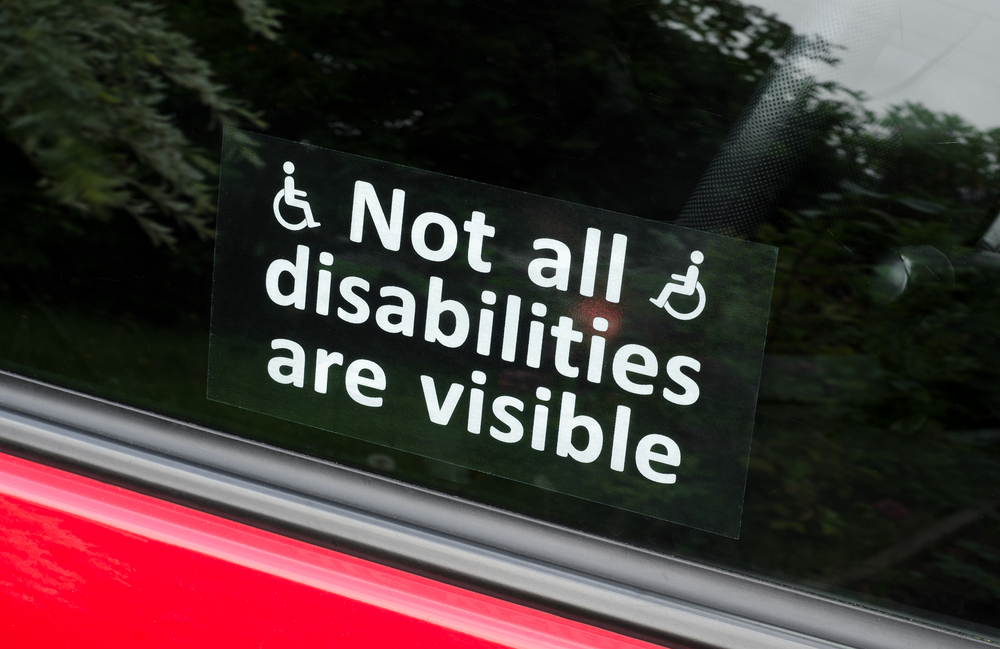
Common Violations of Disability Rights in the Workplace
Recognizing and Addressing Disability Discrimination in California Workplaces
Understanding Disability Rights
California takes workplace discrimination seriously. If you’re living with a disability, you have protections under both state and federal law. Yet, violations of disability rights in the workplace still happen far too often. Knowing your rights is the first step to protecting yourself and your livelihood.
Many employees don’t realize that the California Fair Employment and Housing Act (FEHA) offers even broader protections than federal laws like the Americans with Disabilities Act (ADA). If you believe your employer is not respecting your disability rights, you’re not alone. Understanding what counts as a violation and how to respond can make all the difference. For a broader look at workplace protections, see our California Employment Law overview.
What Counts as a Disability
A disability, under California law, is any physical or mental condition that limits a major life activity. This includes chronic illnesses, mobility challenges, mental health conditions, and learning differences. The Disability Rights section of our site explains these definitions in more detail.
Examples of Covered Disabilities
- Hearing or vision loss
- Mobility impairments
- Diabetes, epilepsy, or cancer
- Anxiety or depression
- Learning disabilities
State and Federal Protections
California’s FEHA goes beyond the ADA by covering more employers and a broader range of disabilities. Employers with five or more employees must comply. Both FEHA and the ADA make it illegal to:
- Deny reasonable accommodations
- Fire or demote you because of your disability
- Harass or retaliate against you for asserting your rights
To learn about other protected categories, see our page on Workplace Discrimination.
Most Common Violations
Unfortunately, even with clear laws, violations remain widespread. Here are some of the most frequent issues California workers report:
- Refusing to provide reasonable accommodations
- Failing to engage in the interactive process
- Retaliating after an accommodation request
- Harassing employees with disabilities
- Requiring medical information the law does not permit
For more details on what accommodations you can request, check our article on How to Request Reasonable Accommodations at Work.
Refusing Reasonable Accommodations
One of the clearest violations occurs when an employer denies a reasonable accommodation request without a valid reason. Accommodations might include:
- Modified work schedules
- Ergonomic equipment
- Remote work options
- Leave for medical appointments
If you’re unsure what counts as reasonable, see our Your Rights Under Disability Discrimination Laws overview.
Failing to Engage in the Interactive Process
California law requires employers to engage in a good faith, interactive process with employees who request accommodations. This means:
- Discussing your needs openly
- Exploring options together
- Documenting each step
Ignoring or brushing off these requests violates both state and federal law.
Discriminatory Harassment
Harassment based on disability can include:
- Offensive jokes or comments
- Exclusion from meetings or projects
- Unwelcome attention to your medical needs
These behaviors often signal a Hostile Work Environment, which may also violate your rights under other employment laws.
Unlawful Medical Inquiries
Employers cannot ask for more medical information than necessary to support an accommodation request. Demanding excessive documentation or prying into unrelated health details is a violation.
Retaliation for Asserting Rights
It’s illegal for employers to punish you for:
- Requesting accommodations
- Filing a complaint
- Participating in an investigation
If you experience retaliation, review our Retaliation Claims resource to learn about your options.
Firing or Demoting Employees
Some employers try to sidestep the law by terminating or demoting an employee after learning about their disability or accommodation request. These actions can give rise to wrongful termination claims. For more, see Wrongful Termination.
Failure to Prevent Discrimination
California law places an affirmative duty on employers to prevent disability discrimination. This includes:
- Training staff on anti-discrimination policies
- Responding promptly to complaints
- Maintaining confidential records
Action Steps for Employees
If you suspect your rights have been violated:
- Document every incident, including dates and people involved.
- Submit a written accommodation request or complaint to HR.
- Keep copies of all communications.
- Consult with an experienced employment attorney.
You can read more about how to document discrimination at work to strengthen your case.
Damages and Legal Remedies
If your employer violates your disability rights, you may be entitled to:
- Back pay and lost wages
- Compensation for emotional distress
- Changes to workplace policies
- Legal costs
For examples of successful outcomes, see Common Damages in Wrongful Termination Lawsuits. Every case is unique, and outcomes depend on specific facts.
Preventing Future Violations
You can help create a safer workplace by:
- Knowing your rights and responsibilities
- Reporting violations promptly
- Supporting colleagues with disabilities
Employers who invest in disability inclusion often see better morale and productivity.
Closing Thoughts
No one should have to choose between their health and their job. If you’re facing disability discrimination in California, the law is on your side. Attain Law is dedicated to protecting your rights. If you want to speak with an attorney about your situation, contact us today for a free consultation or call (888) 970-8627. We’re here to support you every step of the way.
Frequently Asked Questions about Disability Rights Violations in California Workplaces
What laws protect workers with disabilities in California? California’s Fair Employment and Housing Act (FEHA) and the federal Americans with Disabilities Act (ADA) protect workers from disability discrimination and require reasonable accommodations.
What is a reasonable accommodation under California law? A reasonable accommodation is any change to the job or workplace that allows a person with a disability to perform their duties, such as modified hours, accessible equipment, or medical leave.
Can my employer ask for my medical records? Employers may only request medical information directly related to your accommodation needs. They cannot require unnecessary or unrelated medical documentation.
What should I do if I experience disability discrimination at work? Document the incidents, report them in writing to your employer or HR, and consult with an attorney to discuss your options for filing a complaint or taking legal action.
Can I be fired for requesting an accommodation? No. It is illegal for employers to retaliate against you for requesting a reasonable accommodation. If this happens, you may have grounds for a wrongful termination claim.
Disclaimer: This is an advertisement. The information provided is for general purposes only and is not legal advice. Consult a qualified attorney for your specific case. Attain Law cannot guarantee outcomes, as results vary by situation.
Browse Other Articles for "Disability Rights" in California:
Start Your FREE Consultation
Complete the form for a Free Consultation. No upfront fees, swift action, and we’re only paid when we succeed for you.
Why Choose Attain Law?
- No Upfront Costs
- We operate on a contingency fee basis—you pay nothing unless we win your case.
- Personalized Attention
- Every case is unique. We tailor our strategies to fit your specific situation.
- Proven Track Record
- Our firm has successfully recovered millions for our clients.
- Statewide Representation
- Based in Woodland Hills, we serve clients throughout California.
Justice Is One Step Away
Ready to turn your struggle into strength? At Attain Law, we’re here to take on your fight—whether it’s a car accident, a dangerous drug, or a workplace injury gone wrong. One call starts it all, and we’re with you every step, no upfront cost required.
- Free Case Review
- No Fees Until Victory
- Millions Recovered
- Personal Strategy
- California Coverage
- Relentless Case Pursuit


